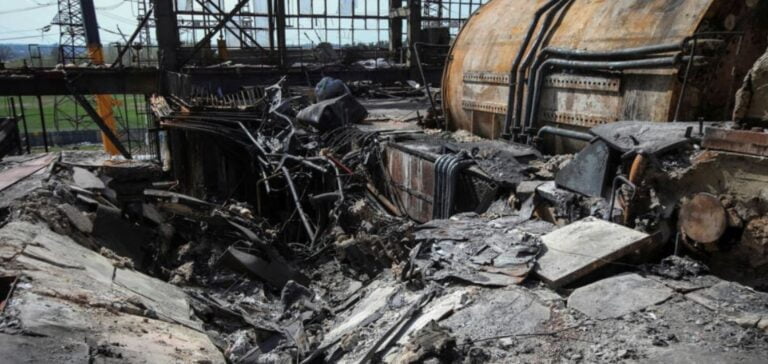On Tuesday night, Russian forces attacked Ukraine’s energy infrastructure. These coordinated strikes left at least six people injured, including an eight-year-old child. DTEK, the main private investor in the energy sector, reports that three thermal power plants have suffered serious damage. Its facilities have been bombed 180 times since the start of the war in 2022, affecting power plants and refineries alike.
Ukraine’s defense efforts
Despite the intensity of the Russian attacks, the Ukrainian air force managed to shoot down 39 of the 55 missiles launched, as well as 20 of the 21 enemy drones. However, injuries were reported in the Dnipropetrovsk and Kirovograd regions, and in Brovary, near Kiev. In Kiev, Russian Tu-95MS bombers launched cruise missiles, but all were intercepted by Ukrainian air defense. These strikes targeted the regions of Poltava, Kirovograd, Zaporijjia, Lviv, Ivano-Frankivsk and Vinnytsia, depriving many towns of electricity. Kherson is also “partially without electricity”, said regional governor Oleksandre Prokoudine.
Ukrainian Energy Minister German Galushchenko said on Telegram, “The enemy is not giving up its plans to deprive Ukrainians of light.”
Attacks on the railways
Russian forces also targeted Ukraine’s railway infrastructure. Bombing damaged tracks in the Kherson region, limiting traffic on one of the lines. For several months now, Russia has been stepping up its attacks on the railways. These infrastructures are vital for trade, civilian transport and military supplies. Moscow hopes to disrupt the transport of military equipment from the West by targeting these infrastructures. Ukraine, which has had no civilian air traffic since the start of the Russian invasion, relies heavily on trains.
Russian strategic objectives
Russia has stepped up its attacks in the run-up to May 9, the date of Russian national celebrations commemorating victory in the Second World War. The Ukrainian authorities believe that Moscow is taking advantage of the arms shortage in Ukraine. By targeting energy and transport, Moscow aims to weaken Ukraine’s ability to defend its territory. The Russian capital also wants to maintain its resilience in the face of the offensive.
Russian attacks on Ukraine’s energy and rail infrastructure demonstrate Moscow’s determination to undermine the country’s defense capabilities and economy. Despite Ukrainian resistance, the massive strikes continue to threaten the stability and well-being of civilians.






















